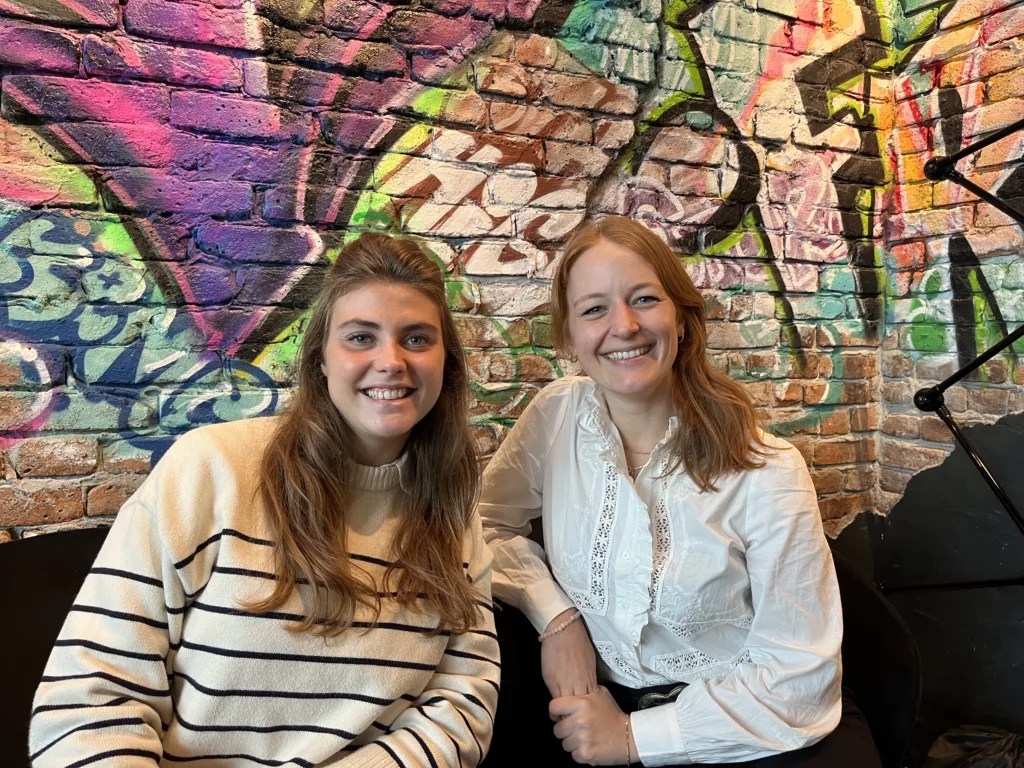After working for 5 years as a Quantitative Risk Analyst at ABN AMRO Clearing in The Netherlands, Marleen Meier started working for the Risk Analytics department, in the US in Chicago. After spending 3 years there, she moved to Singapore to work as the Regional APAC Data Manager, again in another department of ABN AMRO. Marleen has a background in Maths, but still managed to master the financial data world and even wrote a book about a specific data visualization tool called ‘Tableau’. Curious about how Marleen became a Data Professional? In this interview with Young Analytics, she shares her experiences of working and studying abroad, mastering the financial data world and writing her book. Read the interview in PDF here: Marleen Meiers Succes Story
With your study background in Maths and not in Finance, how did you manage creating a link with the financial world?
I read a lot about Finance, financial products and other related subjects in the beginning of my career. During my job interview, my knowledge about Finance was insufficient and the interviewers advised me to read up on Finance subjects like Futures and Options. In the second round they tested me and saw that I was able to pick up on those subjects and, luckily, thought this was enough. What do you like about Finance?
What I really like about Finance is that there is a wide variance of different challenges, products and calculations. It is really interesting! With other businesses and sectors I always missed dealing with more complex and dynamic tasks, but I did find that in Finance, Clearing specifically.
Suppose a young Finance/Data Professional just got hired and really wants to keep up, how would you advise them?
If it is about trends and developments, I would advise them to look online. There’s so much great content for everyone available, for free. Another tip is, that especially if it’s more quantitative or more directed towards Data Science, try to build it too. If they talk about a calculation for example, go do calculations yourself. Get your hands dirty, as they say. I believe that if you reproduce the learning, you will understand and remember it much better and longer.
After this, you moved to Chicago. What did you like most about working abroad?
Actually quite the same that I like about Finance: it’s challenging. There are lots of different factors that come into play when you move abroad, it’s really an adventure. It can be overwhelming sometimes, but once you make it through it’s the best feeling to realize: “Hey, here I was six months ago, completely overwhelmed, and yet I managed to get all those things done!” Would you encourage young professionals to go abroad?
Yes, no doubt! It is an experience of a lifetime and in the broader scheme of things, it is a very rare chance. Therefore, if you can – do it, go for it! I could talk for hours about all the positives (and negatives too) but let me sum it up as “I never learned as much in the same amount of time and feel very fortunate and forever grateful to be given this chance.”
And then you made acquaintance with Tableau. Can you tell us something about this tool?
Tableau is a data visualization tool, which by itself is basically an empty shell, similar to Excel, the tool comes to life with data. Tableau has features like: creating charts, functions and calculations, automation of workflows and interactive dashboards, programming language integration, connectivity to all kinds of databases, Tableau can handle and visualize spatial data and you can share the results with governance and security built around it. It’s all about being able to give more meaning to the data set than it had in its original form.
Can dashboards be created from that, so that the business can more easily understand their data without the complexities behind it?
Yes, with interactive dashboards the user can drill down and/or up whereby the level of aggregation and flexibility is determined by the Tableau dashboard developer. In a good dashboard, it should be very straightforward to get insights and follow along a story without having to understand the underlying data model.
How did you make yourself master in Tableau and why?
Some reports I worked with were quite complex and difficult to understand. More data than a human could possibly process was printed on one page. I would then typically copy the data from the report into excel and reduce the amount of data points in order to grasp what’s going on by grouping, filtering – you know the drill, I think this is very common practice in many firms. Once I liked the results, I started working on a Makro to automatically load all daily reports to produce line charts and bar graphs and aggregations, but the amount of data was way too much for excel. Then someone suggested using Tableau. When I tested the tool, I really liked it! The user interface was very intuitive and easy to use. So I started working with Tableau and wanted to learn quickly. I read a lot of blogs, followed free video courses on the Tableau website, went to free learning sessions, joined the Tableau User Group and participated in Make over Monday. I even went to a Tableau conference in London just a few weeks after I had heard about the tool. Which was more of a coincidence than thoroughly planned, but there I was and a whole new world opened up to me. The participants of the conference were all motivated, young professionals and data enthusiasts and so the conference felt more like making new friends than work. Very much unlike other conferences I attended. During user-sessions, people presented their Tableau use-cases, for example how they adjusted their marketing strategy based on Tableau dashboards or others told the audience that their decision making is driven by Tableau dashboards, another woman show-cased ships on a live map and how the company can easily spot problems in the supply chain. I sat there, tried to absorb every detail and thought about the potential of our data at ABN: “We can do so much more than just visualizing a report.”
When and why did you start thinking about writing a book?
After I went to the Tableau conference in London, I often thought about those aforementioned user-sessions and I was still so impressed by the use-cases I had seen and the people I had met. It motivated me to work on something meaningful that someday I could share with an audience and that would perhaps inspire someone too. So it happened that I started working on an Anomaly Detection Machine Learning (ML) project. The problem was that no one trusted the outcome because it was the first ML project at ABN AMRO Clearing and it really was a black box to most. Now, by using Tableau we tried to visualize why the ML model marked a datapoint as anomaly, such that users could cross-check certain outcomes against peers and would feel more confident in their decision making process. With this project I applied for being a speaker at Tableau Conference 2018 and got selected. OMG! I still can’t believe that happened. Shortly after the conference I got a message on LinkedIn from a publishing house in the UK. They asked me if I wanted to write a book about Tableau. At first, I thought it was spam, phishing or some joke but it wasn’t and so: “What did I have to lose?”
After a long, exhausting year, my first book was published in 2019 and two years later, I published another edition. Currently, I’m busy writing the third edition.
What did you enjoy most about writing the book?
I like writing in general and always have. But I also enjoy doing the research for a new book. With Tableau I would think about the new features and be like: What would be a really cool use case for readers? How can I make this fun and easy to understand? What would be an exercise to remember this new functionality by? Can I use different data sets that people don’t know yet and that still allow for true insights? I really like to think about those questions and challenge myself to produce something useful.
Where do you get that inspiration?
I get inspired by reading the Tableau release notes, blogs, design and data books, I watch YouTube videos, scroll through Tableau Public or by just thinking about problems I encounter in my life and how to solve them with data. But the biggest inspiration is the Tableau community itself. I have not seen another company yet whose customers are so supportive, engaged and connected with each other. At the Tableau conference, for example, or at Tableau User Group meetings, you will notice that people absolutely love the tool and that “community” is to be understood literally.
Why do you think that is? Is that marketing? Because I believe you also have other tools that can certainly contribute well to acceleration and automation?
I honestly don’t know. Of course there are other tools that work just fine and I am not even sure if this was planned by Tableau or if it just so happened that all those users are so engaged? Perhaps I am underestimating other communities, but I hear from many people that the Tableau community feels very unique. They even have songs about data and the tool, it’s on YouTube.
Do you have a tip for young data professionals? What competencies do you think a Young Professional should have? What would you like to pass on? How will you make progress as a young professional?
Firstly, keep learning and apply it, practice it whenever you can. Build your own portfolio with relevant use-cases. Use online resources to learn tools like Tableau, and go to accredited institutions when you want to understand broader concepts that take more time, e.g. Data Analytics as a whole. The quality is just better in my experience, more in-depth and employers value a course at a (i.e.) University more than a Coursera or Udemy course, at least from my experience. Secondly, work on your soft skills. If by the end of the day you are proficient in 5 tools but can’t communicate, it won’t help you any further. Focus on quality rather than quantity. Knowing 2 tools 100% and spending the rest of your free time on soft – and organizational skills is a very good start. Lastly, listen to your stakeholders, if you build a dashboard and no one needs it, understands it, uses it, it is useless. Listen and build what users need not want you want.
When you look back at your whole career now, any regrets? Things you would have done differently?
If I would have done anything differently I wouldn’t be where I am today and I am pretty happy, so it’s hard for me to say. I feel very lucky in that sense. But, if I were to study again for example, I would like to study Bionics or Biomimetics. Maybe something I can pick up in the future or when I am retired.
Why would you have chosen that now?
I always liked statistics and have my statistics/data life now, but I also liked engineering and biology. In bionics I could learn from our vast nature and build more efficiently anything probably. Thanks to Bionics we fly in planes, produce solar energy and the high speed train Shinkansen for example mimics the Kingfisher bird’s beak. There are many more examples of course and I just find it very fascinating. The core idea however remains the same, I want to improve efficiency and understand the world a bit better, I guess. I would have also liked Data Science which wasn’t really an option at the time I studied, but in my opinion it’s a very good pick now because students will have very hands-on programming experience.
Do you think that there are also more business cases involved in that kind of studies?
Yes, I think so. I took Data Science courses at the University of Chicago from a Data Science Master and at the end of each course we had a real business case to solve. That was really beneficial because it was relevant and transferable to work, but we also started building a data science portfolio this way. So, if people are studying Data Science and they want to dive into Finance afterwards, would you recommend them to go pick projects focused on the Finance side?
Yes, I would do that and get some information on problems the sector still has and is trying to solve. During a future interview a project you worked on, that can immediately add value, will be a plus.
Last question: Have you made a blooper in the last few years?
I sure did. When I was still working in Amsterdam my colleague and I went to the Big Data conference in Utrecht and presented something related to Tableau there. The presentation went well until it didn’t because the screen froze. A tech guy from the venue came to help and he opened some other documents by accident on our laptop. We were so in panic that it would show up on the screen in front of all these people that we unplugged the laptop right away. But the light from the screen was also the only light in the room, so everything went dark and people slowly started to leave the room. Eventually the Laptop was fixed but the room was kind of empty and we felt so bad and unprepared. What is good preparation?
Since that day I always remove all applications and files that I might have pinned to the taskbar. But more importantly, practice your presentation. It sounds so lame, but it really makes a difference. Present for your audience, not for yourself and prepare accordingly with them in mind. You can also check with a friend or family member beforehand if your story line makes sense – keep it simple.



